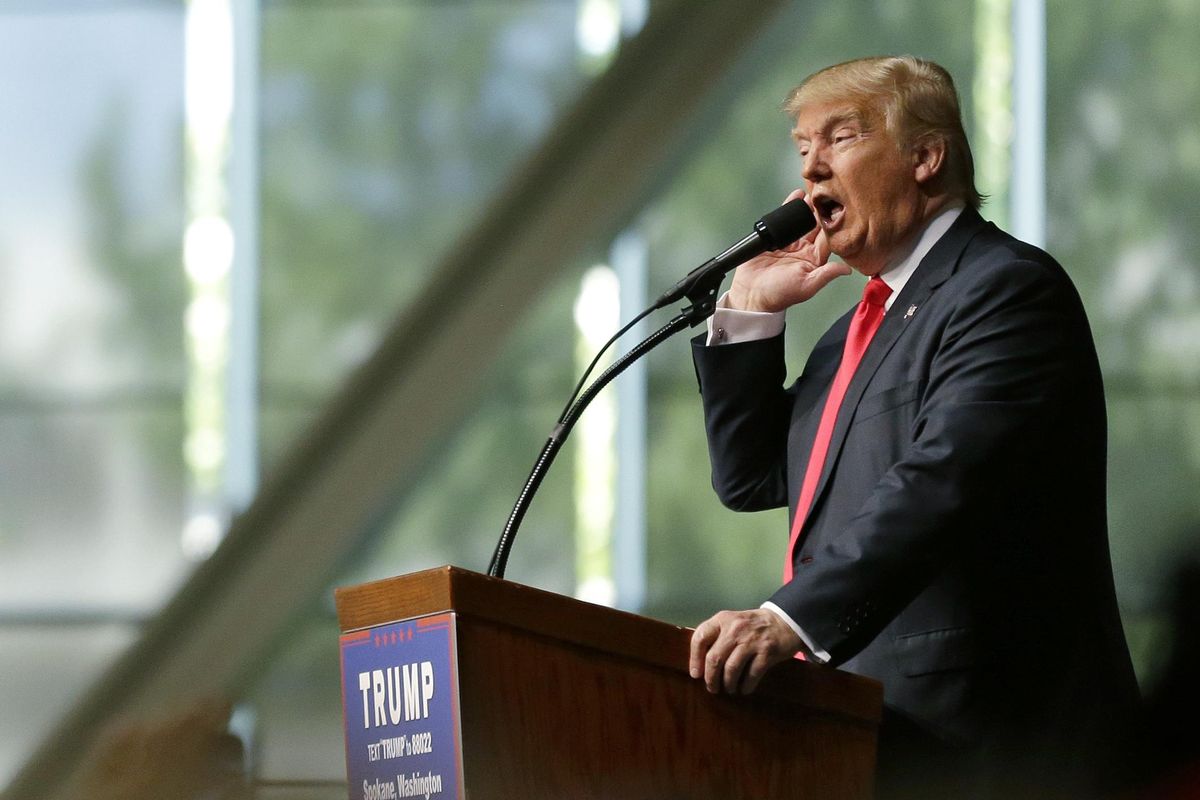Cities on the presidential campaign trail, including Spokane, left to foot the bill

Aside from their presidential aspirations, what do Donald Trump, Hillary Clinton and Bernie Sanders have in common?
An unpaid bill from the city of Spokane.
And yet it’s entirely possible that Sanders and Trump will swing through Spokane again in 2020, just four years after both included the city on their campaign tours at a substantial – and unpaid – cost to city taxpayers.
Anticipating that Spokane could once again be a destination for presidential hopefuls – requiring Spokane police to provide security – city officials are contemplating how best to balance fiscal responsibility with the obvious benefit to area residents of hearing from candidates.
It’s a conundrum cities across the country are grappling with.
“I think it would be good to start the dialogue not just here in Spokane, but on a national level with other cities,” said City Councilwoman Candace Mumm. “We want to encourage (candidates) to come to the city, but they also need to know what the financial impacts are.”
Ultimately, there is no mechanism to force a campaign to pay for security costs, according to spokeswoman Kirstin Davis.
“This is an issue any city can be faced with and don’t have much control over,” Davis said.
In 2016, the administration of then-Mayor David Condon estimated two campaign events held by Bernie Sanders, at the Spokane Convention Center and at Spokane Veterans Memorial Arena, cost the police department a total of $33,000.
Donald Trump was billed $65,124 for his rally at the Spokane Convention Center, which saw protesters gather outside. More than 90 city police officers worked 955 hours to cover the event, which lasted about an hour.
When a high-profile candidate or official comes to town, Spokane police are typically contacted by Secret Service personnel beforehand, according to Sgt. Terry Preuninger. The planning process is a collaboration between the two agencies, because “we do know our own community,” he said.
“Between their requests and our input, we come up with what the detail is going to be,” Preuninger said.
The department will ask precinct leaders which officers they can reassign to the event while maintaining safe levels of staffing in their neighborhoods. But, ultimately, a major event will require officers to work overtime, which comes with a cost, even though “we really do try to watch it,” Preuninger said.
At the very least, Mumm suggested the city should make clear up front to the campaigns the costs of providing security for an event, and collaborate to create the most fiscally efficient event. For example, those held indoors are less expensive, Mumm noted.
“If the candidates had that information upfront, I would hope that they would do their best to keep their needs for our police force to provide security” to a minimum, Mumm added.
Councilwoman Lori Kinnear, who chairs the city’s Public Safety and Community Health Committee, wants the city to explore requiring candidates to pay for security ahead of time by rolling it directly into the cost of renting the venue. Or, if the event is outside, security costs should be added to the cost of a permit, she said.
“We’re just going to have to be a little more creative than we were before. I think it took us all by surprise when we learned they didn’t pay (in 2016),” Kinnear said.